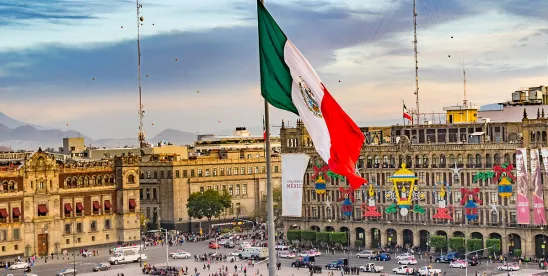Mexico’s General Law to Prevent, Punish, and Eradicate Crimes Related to Human Trafficking and for the Protection and Assistance to the Victims of These Crimes (“Human Trafficking Law”) has as its purpose to protect the life, dignity, and freedom of vulnerable individuals—such as minors, the elderly, women, physically disabled individuals, and people with mental health conditions that reduce their capacity to form judgments—who may be disadvantaged due to age, sex, precarious socioeconomic conditions, migration conditions, origin, or belonging to an indigenous people or community. The law was recently amended to protect individuals from working excessive hours.
Quick Hits
- Mexico’s Human Trafficking Law has been amended to define overtime work generated beyond legal limits as a form of labor exploitation.
- When overtime is generated, employers will have to pay for it and may be liable for fines and penalties.
- The Human Trafficking Law establishes a penalty of three to ten years of imprisonment and a fine of 5,000 to 50,000 fine days. The penalties increase to four to twelve years of imprisonment and a fine of 7,000 to 70,000 fine days when the affected workers belong to indigenous or Afro-Mexican peoples or communities.
On June 7, 2024, Mexico’s government published in the Official Gazette of the Federation an amendment to Article 21 of the Human Trafficking Law that deems overtime beyond statutory limits a form of labor exploitation. The amendment took effect on June 8, 2024. The Human Trafficking Law defines labor exploitation as:
The direct or indirect obtaining of an unjustifiable benefit, economic or otherwise, in an unlawful manner, through the work of others, subjecting the person to practices that violate his or her dignity, such as:
I. Dangerous or unhealthy conditions without the necessary protections according to labor legislation or existing standards for the development of an activity or industry;
II. Existence of a manifest disproportion between the amount of work performed and the payment made for it; or
III. Salary below what is legally mandated.
The amended law adds excess working hours as a form of labor exploitation:
IV. Working hours in excess of what is stipulated by law.
“In view of the foregoing, employers will want to take into account the maximum work shift hours permitted under Mexico’s Federal Labor Law (FLL). The FLL’s limit for the standard workweek is 48 hours per week. For mixed shifts, the limit is 45 hours per week (7.5 hours per day); and for night shifts, the limit is 42 hours per week (7 hours per day).Work shifts may also be negotiated within an individual employment agreement.
The FLL establishes the possibility of working overtime on an exceptional basis and without exceeding the weekly maximum allowed (9 hours of overtime per week). Overtime hours must be paid at twice the regular rate. However, it is important to consider that overtime in excess of the maximum allowed, although regulated, is not permitted. Overtime hours in excess of the allowed must be covered at triple the regular rate and employers may be subject to fines..
Regardless of the payment of overtime and fines, the labor exploitation crime is prosecuted ex officio, which means that there is no need for the affected party to report it, and any person or even any authority (e.g., the Instituto Mexicano del Seguro Social (IMSS), Mexico’s Ministry of Labor and Social Welfare) that has knowledge of alleged illegal overtime work may report it. Those accused are considered “alleged responsible(s)” and will be subject to preventive prison during the process. Anyone within a company’s chain of command may be liable.
The Human Trafficking Law establishes a penalty of three to ten years of imprisonment and fines of 5,000 to 50,000 fine days. A “fine day” is equivalent to the daily income of the responsible individual at the time of the crime, taking into account all income.
The penalties when a crime is committed against persons belonging to indigenous and Afro-Mexican peoples and communities are aggravated and may result in four to twelve years in prison and fines of 7,000 to 70,000 fine days.
In light of the amendment to the Human Trafficking Law, employers may want to consider reviewing whether and how often overtime is worked to determine if it is worth restructuring shifts to avoid overtime as much as possible. When overtime is generated, employers may want to record evidence of the corresponding written authorizations and applicable payments. Finally, employers will want to avoid situations in which overtime is generated in excess of what is legally permitted, as this is where the risk of criminal liability for the crime of labor exploitation may exist.






 />i
/>i

